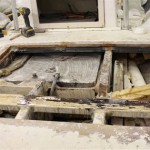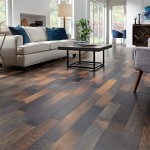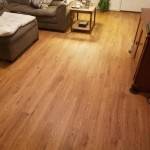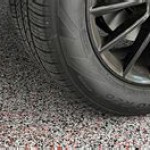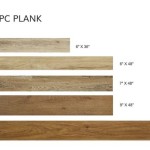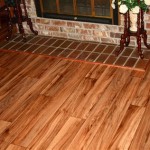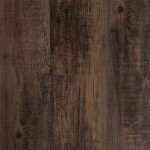Engineered Wood Flooring: Pros and Cons for Your Home
Engineered wood flooring has gained popularity in recent years as a stylish and durable alternative to traditional hardwood flooring. It offers a wide range of benefits but also has some potential drawbacks. Here's an in-depth look at the pros and cons of engineered wood flooring to help you make an informed decision for your home.
Pros of Engineered Wood Flooring:
- Durability: Engineered wood flooring is constructed with a core of plywood or high-density fiberboard and a veneer of real hardwood. This combination provides exceptional strength and resistance to scratches, dents, and moisture.
- Stability: Unlike solid hardwood flooring, engineered wood flooring does not expand or contract as much with changes in humidity. This makes it ideal for areas with varying temperatures or moisture levels.
- Cost-Effective: While engineered wood flooring is more expensive than laminate flooring, it is significantly more affordable than solid hardwood flooring. It provides a comparable look and feel at a more accessible price point.
- Easy Installation: Engineered wood flooring can be installed using a variety of methods, including floating, glue-down, and nail-down. This allows for easy and efficient installation, even for DIY enthusiasts.
- Wide Selection: Engineered wood flooring comes in a wide range of species, colors, and finishes. This allows you to customize the look of your floor to match your home décor.
Cons of Engineered Wood Flooring:
- Limited Refinishing: Engineered wood flooring has a thin veneer of real hardwood, which limits the number of times it can be sanded and refinished. This can be a concern if you plan on making frequent changes to the appearance of your floor.
- Potential Moisture Damage: While engineered wood flooring is moisture-resistant, it is not waterproof. If exposed to excessive moisture, it can swell and buckle.
- Less Authentic: Some people may prefer the look and feel of solid hardwood flooring, which is more traditional and authentic.
- Environmental Concerns: The manufacturing process of engineered wood flooring can be more energy-intensive than solid hardwood flooring. It is important to consider the environmental impact when making your decision.
- Price: While engineered wood flooring is more affordable than solid hardwood flooring, it is still more expensive than some other flooring options, such as laminate or vinyl.

Engineered Hardwood Vs Laminate

Solid Vs Engineered Hardwood Which Is Better

Engineered Wood Flooring Homeowner Pros Cons

Laminate Flooring Vs Engineered Hardwood Pros And Cons

Engineered Hardwood Flooring Pros And Cons Floors Blvd

Pros Cons Of Engineered Hardwood Flooring Reno Super

Engineered Wood Flooring Pros And Cons Forbes Home

Engineered Timber Flooring Pros And Cons Versace Timbers

Choosing 2mm Engineered Wood Flooring Pros And Cons Beyond Blog

Hardwood Vs Engineered Wood Flooring Which Is Best For You Forbes Home

